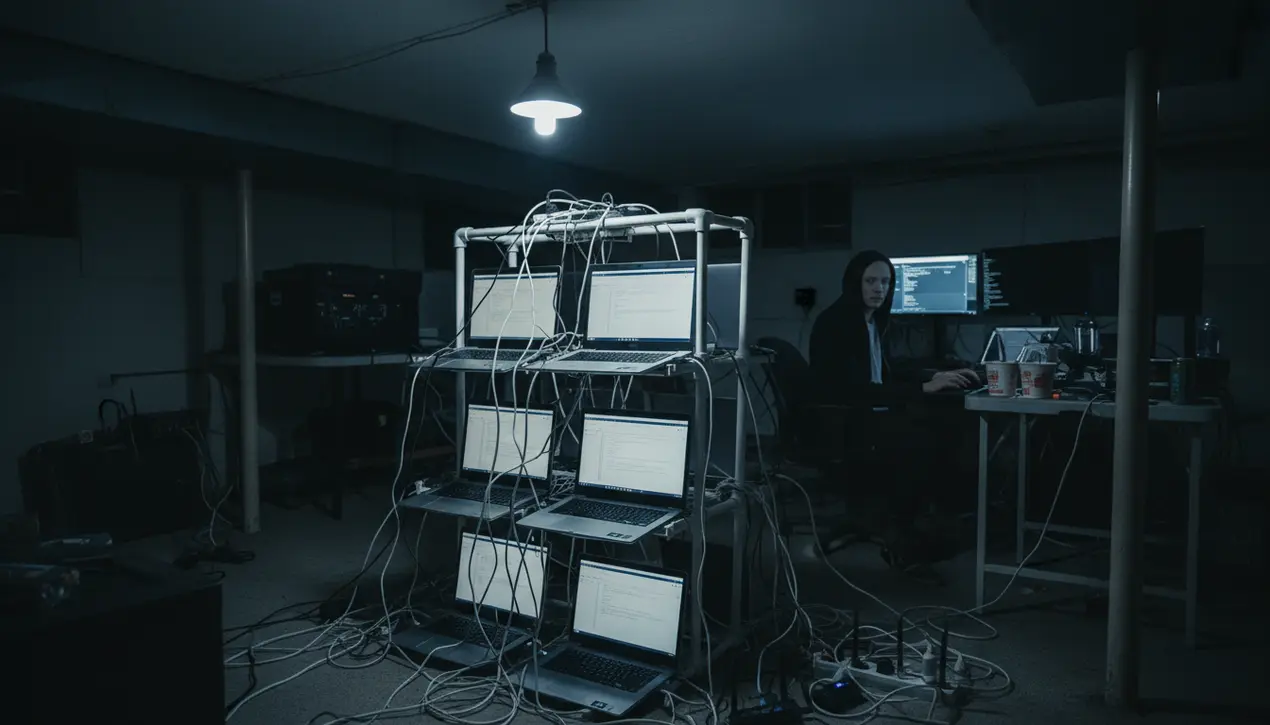
Politicscourts & investigationsCorruption Investigations
North Koreans used laptop farm for US IT jobs scheme.
OL
Oliver Scott
6 hours ago7 min read2 comments
In a stunningly brazen operation that reads like a geopolitical thriller, North Korean operatives have executed a sophisticated scheme to infiltrate the United States' IT sector, establishing clandestine laptop farms within American residences to create the illusion that their overseas workers were physically based in the US. This isn't merely a case of remote work fraud; it's a calculated act of economic and digital warfare with profound implications for national security and corporate integrity.The mechanics are as ingenious as they are alarming: by routing internet traffic through residential IP addresses in the US, these operatives effectively created a digital smokescreen, allowing them to secure contracts with a multitude of American companies, potentially gaining access to sensitive software, proprietary business processes, and internal corporate systems. This operation must be understood within the broader context of North Korea's well-documented strategy to bypass crippling international sanctions and generate illicit revenue for its regime, a playbook that has previously included everything from cryptocurrency heists to state-sponsored counterfeiting.The strategic brilliance lies in its simplicity—leveraging the globalized, trust-based nature of the modern tech freelance economy against itself. The potential fallout is catastrophic; imagine a hostile state actor embedded within the codebase of a financial institution, a defense contractor, or a critical infrastructure provider.The access gained could be used for intellectual property theft, to plant logic bombs for future disruption, or to establish persistent backdoors for espionage. This incident serves as a stark, non-kinetic warning shot, demonstrating that the front lines of international conflict have irrevocably shifted into the digital realm, where a laptop can be as potent a weapon as a missile.For risk analysts and corporate security teams, this should trigger an immediate and thorough review of third-party vetting processes, remote worker verification protocols, and network security postures. The era of assuming geographic location based on an IP address is unequivocally over.This scheme exposes a critical vulnerability in the interconnected global economy, one that other adversarial nations are undoubtedly studying with keen interest. The required response is not just punitive but systemic, demanding a new paradigm of zero-trust architecture and enhanced due diligence that can defend against an adversary who is no longer at the gate, but has already found a way to slip inside the walls.
#fraud
#identity theft
#North Korea
#remote work
#laptop farm
#US jobs
#featured
Stay Informed. Act Smarter.
Get weekly highlights, major headlines, and expert insights — then put your knowledge to work in our live prediction markets.
Comments
Loading comments...
© 2025 Outpoll Service LTD. All rights reserved.